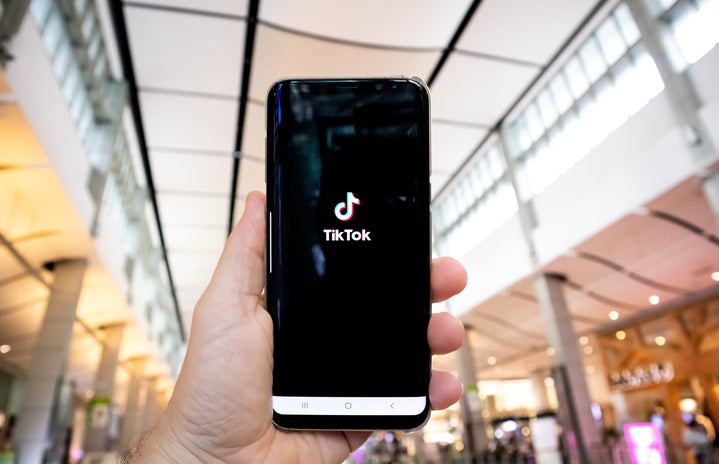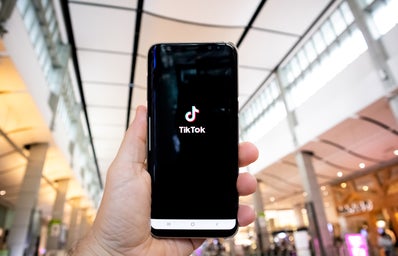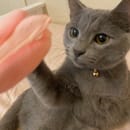Oh, they seem so sweet, we whisper to ourselves as we watch our favourite celebrities stumble to string coherent responses, overtaken by the joy of four-legged furries traipsing all over them in a BuzzFeed studio.
These blinks of rawness clear the glamour and glitz smokescreen of celebrity culture and foster an image so tantalizing we shell out space in the cavities of our hearts and fabricate a sense of one-sided intimacy with strangers. We establish a connection and find a home in a person we have virtually no access to, creating imaginary projections of what we want to see in a person we adore.
Anthropologist Donald Horton and sociologist Richard Wohl first described this interaction as “one-sided, nondialectial, controlled by the performer, and not susceptible of mutual development” in a 1956 study.
Parasocial interactions occur when someone forms a link with an individual they’ve perceived through various media forms. By regularly consuming media on this individual, there becomes an illusion of a shared history between the two, fostering a parasocial relationship. A person might then believe they understand this individual more intimately and intensely than others and have a strong understanding of their values and motives.
So, what happens when this illusion of perfection is disrupted?
A recent example of how detrimental this can be is the reaction to the death of former One Direction member Liam Payne, who passed away on Oct. 16 after falling from the balcony of his hotel room in Buenos Aires, Argentina.
According to ABC News, an initial toxicology report indicated Payne may have had several drugs, including cocaine and methamphetamine, in his system at the time of his death. Although officials said that the injuries from the fall were likely to cause his death, that hasn’t stopped Payne’s fans and internet trolls from harassing his ex-fiancée on several social media platforms.
Maya Henry, an influencer, author and model, is under fire for her comments pertaining to her former partner in the days leading up to his sudden death. Her debut novel, inspired by true events, first sparked controversy among the pop star’s fans back in spring.
Henry’s book Looking Forward explores domestic violence and the sour ends of a seemingly picturesque fairytale. Henry said she drew inspiration from her journal entries about her former relationship with Payne, which sprung in 2019 and ended in 2022. According to the Daily Mail, she had sent him a cease-and-desist letter in early October in response to the harassment she had been experiencing after their parting, which she has also been vocal about on her TikTok.
Two days before Payne’s passing, she appeared on an episode of The Internet is Dead podcast, where she detailed the alleged abuse and harassment she faced at the hands of him before and after their split. She also discussed the parasocial relationship between him and his fans and the mixed reactions she has received from Directioners since the release of her novel.
“You don’t know him. I’ve lived in a house with him,” said Henry while touching on the nature of parasocial relationships in her episode with The Internet Is Dead.
Since then, the comments on the podcast’s video on YouTube and those on Henry’s Instagram have been littered with spiteful diatribes calling her a liar and blaming her for Payne’s death.
In an age of true crime and celebrity-crazed devotees, fans of Payne have geared up to pin his death on the allegations from Henry. Away goes the “believe women” banners in favour of pitchforks as Henry’s credibility as a victim is being called into question. Several commenters chided her for telling her story to the media “before contacting the police.”
It’s unfortunate to see people’s ability to have compassion for victims decline when these cases drive a wedge between their parasocial fantasies and reality; that a society that praises itself on its progressiveness uses such regressive language and tactics when something doesn’t fit the fantasy of what they’ve conjured in their head.
It’s appalling to see Henry barraged with comments claiming she drove Payne to such a dire mental state, causing his death, and that she must be happy and healed. Now, her Instagram comments are limited, and her TikTok comments have been shut off.
What’s more unfortunate is that this hate campaign will not end with Henry, and she’s not the first to face the public’s fury for sharing her side of a private relationship. This toxicity has real consequences and must be addressed when noticed.
Parasocial relationships convince people that their understanding of a celebrity, and even of fictional characters, is more profound than others, making them experts in determining their morals and actions. While former fans regurgitate that Henry disregarded Payne’s mental health, they overlook what these disparaging comments can do to her mental health. She had a real, tangible relationship with Payne, and seeing that dismissed due to a fantasy fostered between audience members and public figures predominately through media appearances is saddening.
We only see a fraction of how celebrities are and how they act. It’s not worth tarnishing a stranger’s name because you believe you know them better despite being so isolated from the situation. Regardless of whom you’re a fan of, it’s important not to allow these snippets of celebrities’ personalities to bleed into your objectivity and compassion for people.
So, if you are worried that your affections for a celebrity have gone too far and that you see yourself as just as a part of their life as they are of yours, be sure to unpack why that may be the case. Parasocial interactions are common and healthy but can become an alarming concept when people are isolated from real-life interactions. It’s essential to strengthen and create bonds with the people in your life and channel your energy into those relationships so that you can stay grounded and connected with what truly matters.
If you or someone you know is seeking help for mental health concerns, visit Canada.ca for specified mental health support. In case of an emergency, call the 9-8-8 Suicide Crisis Helpline.


